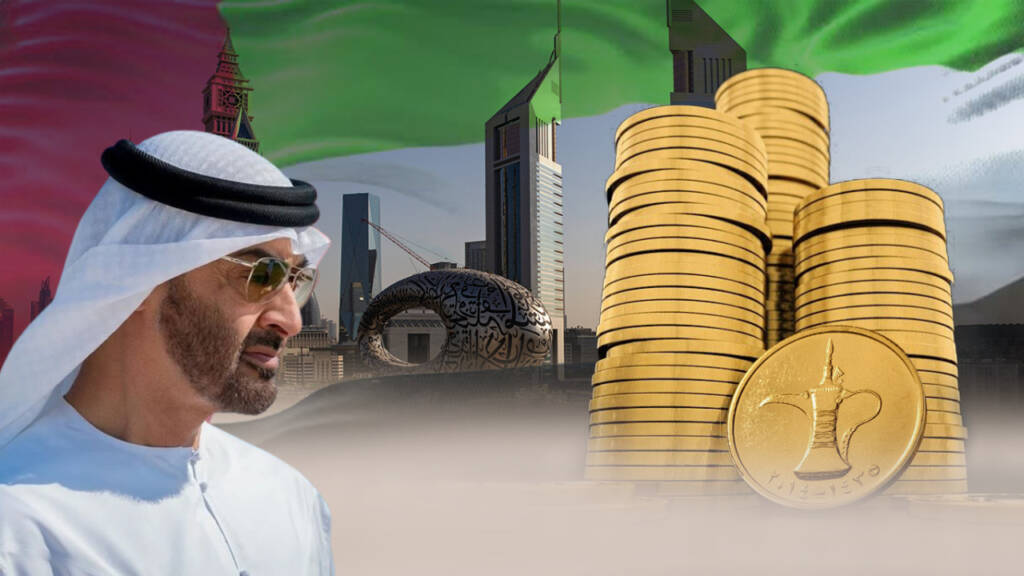In the wake of the recent Israel-Gaza conflict, the resurgence of polarization in the Middle East has become evident. The Muslim Brotherhood, also known as Ummah, has emerged as a crucial entity in the in Western Asia and the Arabic world.
Despite previous attempts by Arabic nations to convey a departure from hardline stances, the ongoing conflict with Israel, especially its actions in Gaza and against Hamas, has ignited a fervent response. Mass rallies against Israel have erupted in the Middle East, leading to the rise of the Muslim Brotherhood against Israel’s actions.
Amidst the recent escalation in the Middle East, several nations, including Jordan, Iran, Oman, and even Saudi Arabia, have strongly condemned Israel’s actions, particularly concerning Hamas. However, the United Arab Emirates (UAE) has notably refrained from aggressive involvement in the conflict.
The UAE government sympathizes with the Palestinian people but maintains a clear stance on Hamas, acknowledging it as a terrorist organization.
Read More: Israel is Paying the Price of a Blunder Committed in 1994
In response to Hamas’s actions, UAE, alongside Bahrain, condemned the group’s escalation as “serious and grave,” expressing specific appall at Hamas’s hostage-taking of Israeli citizens. In contrast, Qatar placed the responsibility solely on Israel for the escalation, reflecting a sentiment more in line with the broader Arab population.
An Atlantic Council report revealed that UAE officials, while sympathetic to Palestinian concerns, privately hope for a swift resolution, aligning with their cautious approach. Privately many UAE officials want Israel to end Hamas as soon as possible so that the UAE can restore trade volumes with Israel as soon as possible.
The UAE’s restrained response stems from a deliberate separation of economic interests from political entanglements. UAE simply doesn’t want to mix the economy with politics.
UAE’s pragmatic stance amid the Israel-Gaza conflict is consistent with its historical approach. Abu Dhabi, under King Mohammad Bin Zayed’s leadership, has long prioritized national interests over radical ideologies, steering clear of the Muslim Brotherhood. Rather, the UAE expresses most of its commitment to democratic and modern values, setting it apart from more radical Arab nations.
Join us on Telegram: https://t.me/tfiglobal
Since 2011, UAE’s stance against the Muslim Brotherhood has solidified. At that time, 132 Emirati intellectuals and activists petitioned President Khalifa bin Zayed Al Nahyan for resignation during the Arab Spring, aligning with the Brotherhood. In response, the UAE deployed police officers to Bahrain alongside Saudi troops to suppress dissent, marking the beginning of efforts to quell Arab Spring movements.
These measures aimed to silence critical voices, with UAE’s Crown Prince, now King MBZ, openly expressing his belief that the Brotherhood constitutes terrorism.
This moderate approach has significantly benefited the nation, leading to increased investments and economic opportunities. By avoiding radical activities and championing peace, the UAE has emerged as the most prosperous country in the Arab world.
Over the last decade, residents have experienced remarkable improvements in living standards, ranking 39 out of 149 countries in various indices measuring economic quality, business environment, governance, personal freedom, and social capital.
What sets UAE apart is its moderate public behavior, with minimal influence of Islamic culture on administration. Unlike other nations, UAE’s police don’t enforce strict Sharia laws; there’s an ethos of live and let live.
Despite being pure Arab, UAE does not interfere in citizens’ religious practices, clothing choices, or alcohol consumption, fostering an environment of tolerance and acceptance. This open-minded attitude not only promotes social harmony but also makes the UAE an attractive destination for international investments and business ventures, solidifying its position as a global leader in economic prosperity and social progress.
UAE’s immigrant-friendly policies, coupled with its low crime rate and tax advantages, attract a diverse global population. Its robust economy, driven by oil, offers residents access to quality education. In 2022, the UAE recorded a record $23 billion in foreign direct investment (FDI), rising by 10%, marking it as the 16th-largest FDI recipient worldwide.
Investments primarily flowed into health services and information sectors. Unlike other Arab nations, the UAE recognized the need for diversification beyond oil and gas, leading to the development of prosperous cities like Abu Dhabi, Dubai, and Sharjah, emphasizing money and tourism.
This strategic foresight has not only enhanced UAE’s economic stability but also made it a hub for international investments, bolstering its reputation as a business-friendly and forward-thinking nation.
Read More: UAE just proposed St. Kitts and Nevis, and it said yes!
The UAE distinguishes itself in the Arabic world by maintaining a significant trump card: its ability to stay aloof from Western influence, particularly orders from the USA. Unlike countries such as Jordan, and Lebanon, and Saudi Arabia, the UAE has limited reliance on the United States.
While other nations depend on the USA for moral support, security, and defense, the UAE pursues open dialogue and trade agreements with countries like China, Russia, and India. The UAE welcomes trade and defense deals without waiting for approval from the USA, a strategy that sets it apart. Consequently, UAE’s leader, MBZ, has often refrained from engaging in extensive discussions with President Biden on various issues.
Moreover, the UAE was an early signatory of the Abraham Accords, demonstrating its willingness to engage in peace agreements independently of the wider Arabic world’s considerations. Currently, the UAE stands firm on its commitment to the Abraham Accords for economic purposes and resists pressure from the Islamic Brotherhood.
While it advocates for an end to Hamas and a swift resolution to conflicts, it refrains from adopting extremist rhetoric like others.
Even Saudi Arabia, which seeks normalization with Israel, yielded to the influence of the Muslim Brotherhood, unlike the UAE. This pragmatic stance positions the UAE as one of the most sensible countries globally.
Watch More:
